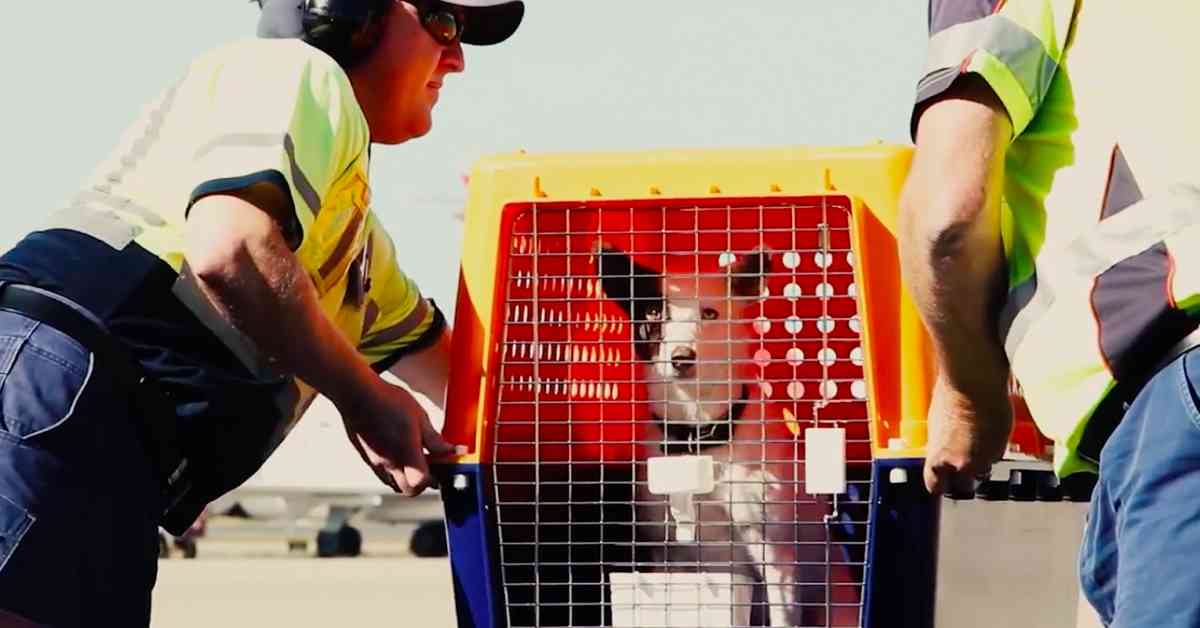Updated November 29, 2020
Have you read our Guide to driving in Australia with dogs, cats or other pets? Driving isn’t for everyone and a lot of the times it isn’t very practical either. Anywhere interstate is at least 6 hours’ drive and if you’re heading to Queensland it’s many times that with overnight stopovers. Many dogs, cats & rabbits will find it very stressful.
Other options include dog boarding, catteries and pet sitting, but you want your best friend with you if possible. Have you thought of sending pets by air?
The company & government information we’ve included are up to date at the time of publishing. We can’t guarantee they will stay accurate so please check the details yourself before departure.
Domestic Pet Air Travel
It’s a lot better than people realise. Here’s why:
The system has become very reliable now pet air travel is common.
- Virgin and Qantas have detailed, informative web pages explaining the process.
- Pets travel in a pressurised and temperature controlled hold.
- You can get companies like Jetpets & Dogtainers to organise it for you instead.
- Even if driving you can send pets unaccompanied to spare them the journey.
There are still some things to consider though:
- You have to check pets in 90 minutes before departure if flying together. Freight terminals are usually in a different location.
- Pets may not have air conditioning at freight terminals and on the tarmac. It’s best to choose flights to avoid hot or cold times.
- Some pets have restrictions on air travel. Puppies & kittens 8 – 12 weeks, dogs & cats over 12 years, pregnant dogs or those with recent illness or surgery all need a vet certificate. Brachycephalic breeds like Pug dogs and Persian cats are restricted from long journeys and some breeds like American Staffordshire Bullterriers, working dogs & greyhounds may only be allowed under certain circumstances. Check with your airline.
- Assistance dogs (guide dogs etc) can travel in the cabin if arranged in advance. Dogs weighing over 65kg (incl. crate) may not be eligible. Compatible animals can travel together if they don’t exceed 14kg in total.
- Allow at least 90 min between connecting flights for your pet to be transferred by airline staff.
Checklist Before Air Travel
1-2 Weeks Before:
- Get vet checkup, update vaccinations and get veterinary certificate stating animal is fit to fly if necessary.
- Buy an IATA approved container in good condition of max size 80 cm (H) x 66 cm (W) x 110 cm (L). You can buy them from us, from the freight terminal or hire them from Dogtainers or JetPets. The cage must be big enough to allow your pet to stand and turn around.
- Ensure that your pet is able to tolerate being confined for a long period in an unfamiliar and noisy environment.
- Check the drop off & pickup locations and that they will be open when you need them.
The Day before:
- Clean the cage and place absorbent bedding in the base plus a favourite toy.
- Fit the water dispenser and familiarise your pet with its use.
On the day:
- Give less food than usual preferably 6 hours before travelling.
- Make sure your pet is well-exercised and has had an opportunity to toilet.
- Drop off your pet with the necessary paperwork between 90 and 120 minutes prior to the scheduled flight departure.
Now read our guide to pet travel for what to do when you arrive!
International Pet Travel
Thinking of taking a dog or cat with you overseas? A lot of people do it but it’s VERY complex to arrange. You are dealing not only with airlines but also with the requirements of at least two governments.
Here we definitely recommend using the pet travel companies instead of trying to organise it yourself.
If you haven’t decided yet, take into consideration that Australia has very strict quarantine regulations for animals returning from some countries. Find out first how hard it will be to bring your pet back. Many animals will be happier staying with people who love them in familiar surroundings than experiencing the joys of double travel and quarantine.
Have something to add? Comments (if open) will appear within 24 hours.
By Andrew Spanner BVSc(Hons) MVetStud, a vet in Adelaide, Australia. Meet his team here.

